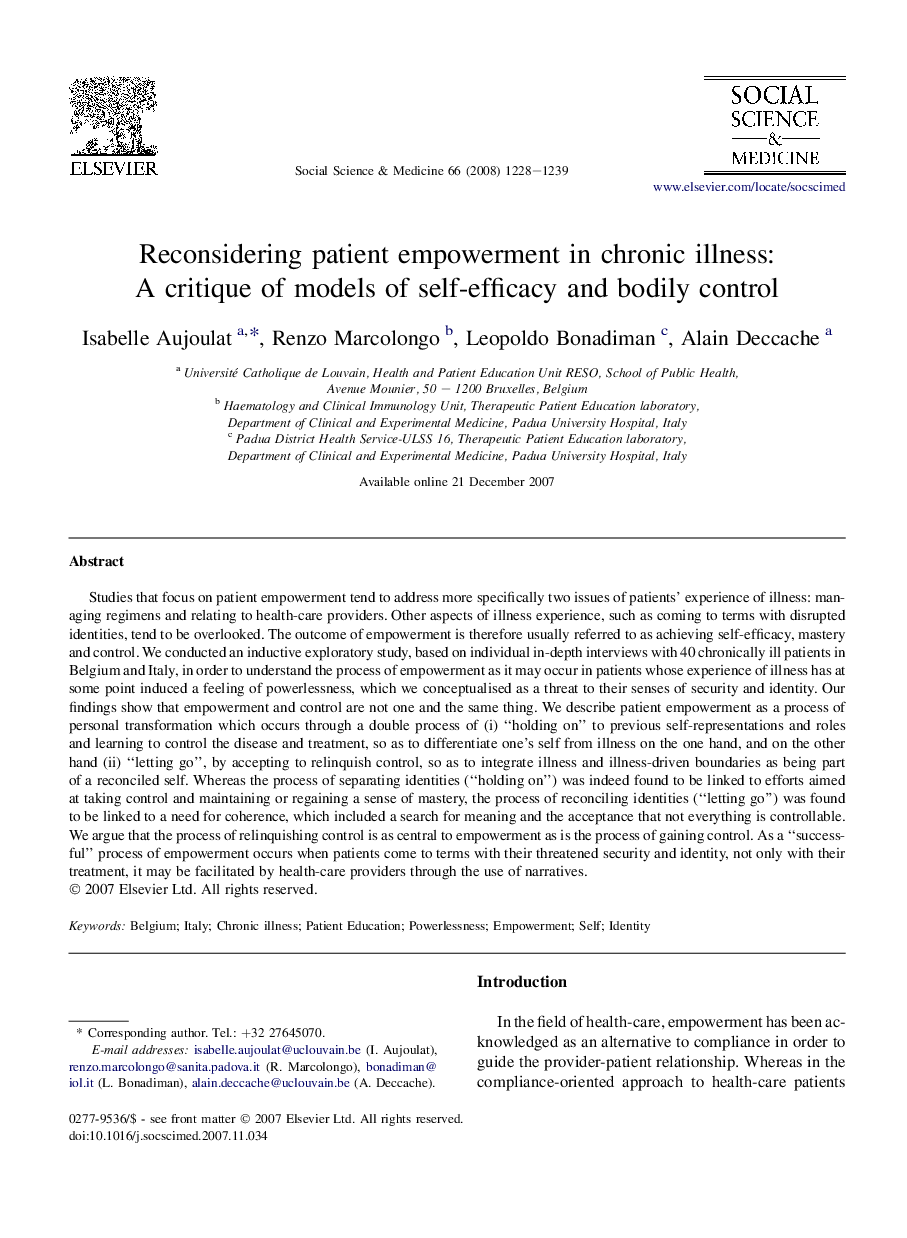| کد مقاله | کد نشریه | سال انتشار | مقاله انگلیسی | نسخه تمام متن |
|---|---|---|---|---|
| 953745 | 927601 | 2008 | 12 صفحه PDF | دانلود رایگان |

Studies that focus on patient empowerment tend to address more specifically two issues of patients' experience of illness: managing regimens and relating to health-care providers. Other aspects of illness experience, such as coming to terms with disrupted identities, tend to be overlooked. The outcome of empowerment is therefore usually referred to as achieving self-efficacy, mastery and control. We conducted an inductive exploratory study, based on individual in-depth interviews with 40 chronically ill patients in Belgium and Italy, in order to understand the process of empowerment as it may occur in patients whose experience of illness has at some point induced a feeling of powerlessness, which we conceptualised as a threat to their senses of security and identity. Our findings show that empowerment and control are not one and the same thing. We describe patient empowerment as a process of personal transformation which occurs through a double process of (i) “holding on” to previous self-representations and roles and learning to control the disease and treatment, so as to differentiate one's self from illness on the one hand, and on the other hand (ii) “letting go”, by accepting to relinquish control, so as to integrate illness and illness-driven boundaries as being part of a reconciled self. Whereas the process of separating identities (“holding on”) was indeed found to be linked to efforts aimed at taking control and maintaining or regaining a sense of mastery, the process of reconciling identities (“letting go”) was found to be linked to a need for coherence, which included a search for meaning and the acceptance that not everything is controllable. We argue that the process of relinquishing control is as central to empowerment as is the process of gaining control. As a “successful” process of empowerment occurs when patients come to terms with their threatened security and identity, not only with their treatment, it may be facilitated by health-care providers through the use of narratives.
Journal: Social Science & Medicine - Volume 66, Issue 5, March 2008, Pages 1228–1239